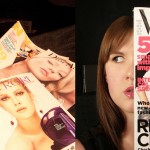1. People with autism are violent
Whenever there is a mass shooting, at least one media outlet makes a point of mentioning that the perpetrator “was probably autistic” or “was suspected of having Aspergers”. This kind of reporting is irresponsible, groundless and discriminatory. Yes, it is true that some people with autism have violent tendencies, but that is also true of the general population. Some black people have violent tendencies, but we don’t go around saying that the perpetrators of crimes “were probably black”, because that would be inexcusably racist. In any case, numerous statistics have shown that people with autism and other developmental disabilities are more likely to be victims of crime than perpetrators. I could go on about this all day, but instead I will point you to this excellent post written by my friend Sophie Walker.
2. People with autism have to follow special diets
Autism parents are always being told to change their kids’ diets. We are bombarded with messages telling us that everything we buy at the grocery store is aggravating the autism and poisoning our families. We are pushed towards the gluten-free, lactose-free, sugar-free, everything-free versions of foods, and there are two problems with this. First, in many cases it is not necessary. Second, these special diets cost an absolute fortune. Many autism families can barely make ends meet as it is – it is wrong to expect them to stretch themselves even further by spending money on expensive foods that in most cases, won’t make a difference. The proper way to do it is to have the child properly tested by a qualified professional, and then make any dietary changes that are needed.
3. People with autism are not capable of empathy
Last weekend, I was at a park with my kids. James was playing on the slides and George was sitting on the outskirts of the play area, contentedly picking up handfuls of sand and letting it slip through his fingers. All of a sudden, I heard a cry of pain, and I looked up to see that a little girl of nine or ten had fallen off the swing. She was lying on the sand crying, and the swing was moving back and forth like a pendulum above her head. Without hesitation, George leapt up and ran to the little girl. He stopped the swing from moving, and guided her out from underneath it. Then he simply stood there beside her until her mother reached her. The moral of this story is: don’t tell me that my child with autism is not capable of empathy. Like many kids with autism, he is capable of empathy, but he doesn’t always know how to express it.
4. People with autism are geniuses
Honestly, Rain Man has a lot to answer for. Because of that movie, people keep asking me if George can instantly do large math sums in his head, or identify with a single glance how many Cheerios have fallen out of a box. The answer is no. He can’t. He’s an intelligent child with problem-solving skills that will stand him in good stead through life, but I have to be realistic. The kid isn’t a genius, nor would I expect him to be. True savants, like artist Stephen Wiltshire, or musician Derek Paravicini, are rare.
5. People with autism don’t understand what’s going on around them
Sometimes I find myself in conversations with people who are asking me about autism, talking about George’s future and making comments on his limitations. I am always happy to have these conversations, but not necessarily in front of George. He may have autism, but he has ears that work, and he understands more than his limited speech lets on. On a related note, it drives me crazy when people ask things like, “Would he like a cup of juice?” when he’s standing right there. If you want to know what George would like to eat and drink, ask him, not me. He often needs help to answer questions, but he should at least be given the opportunity to try. How is he going to learn to have a conversation if people keep talking about him and not to him?
This is an original post by Kirsten Doyle. Photo credit to the author.











